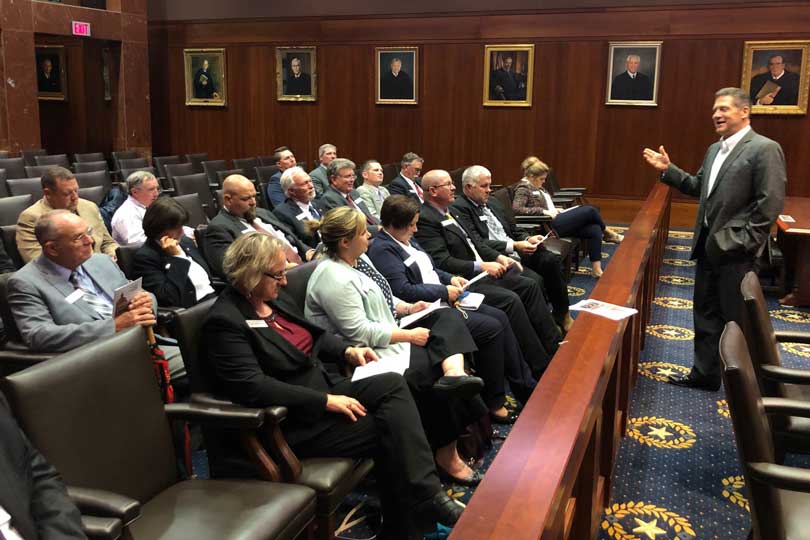By Justin Walker
Communications Specialist
Texas Farm Bureau’s (TFB) AgLead-FarmLead class recently visited the state Capitol to discuss legislation impacting Texas agriculture.
The 21 TFB members within were in Austin April 28 through May 2 to visit with lawmakers, learn more about advocacy and state demographics and visit with agricultural agencies.
“We met with several of the agency leaders and learned more about our state agencies, which I think was really refreshing because some of us had questions about what they do or what they have responsibility over,” Hays County Farm Bureau member Kristin Anderson said. “It was really enlightening to see where each of them is headed and what correlation they have to agriculture and rural Texans.”
The AgLead-FarmLead group also spent time discussing agricultural issues with state representatives and senators including eminent domain reform, water and hemp.
Also during the trip, participants learned about state demographics and the impact that has on legislation, Anderson said.
About 85 percent of the state’s population lives east of Interstate 35, which means rural Texans must be sure their voices are heard, she said.
“Farm Bureau certainly assists in doing that,” she said. “We each have to do our part to engage with our elected officials, because they need to know how the decisions they make impact those of us who work in production agriculture or ag-related businesses.”
On their final day in Austin, the AgLead-FarmLead class visited with local agricultural business and organizations. Their stop at Johnson’s Backyard Garden was an opportunity for members to learn more about organic crops.
“For a lot of us who work in conventional production, it was just refreshing to see that there’s a lot of similarities but also where there’s a way to market that product and certainly you can excel at doing that,” Anderson said.
The group also met with the Texas Beef Council to learn more about the checkoff program and the efforts being made to market beef to all demographics.
The opportunity to visit with state leaders and tour agricultural organizations was a great learning experience, Anderson said. The group walked away with a better understanding of policy and its impact on farmers and ranchers.
“I’m always looking for nuggets of knowledge when we go on these trips,” she said. “It also speaks volumes to our elected officials when a farmer or rancher goes to their office to talk about the issues impacting agriculture. Hearing from those in the field or in ag-related businesses is important for those lawmakers who may not be as familiar with agriculture as we’d like.”

